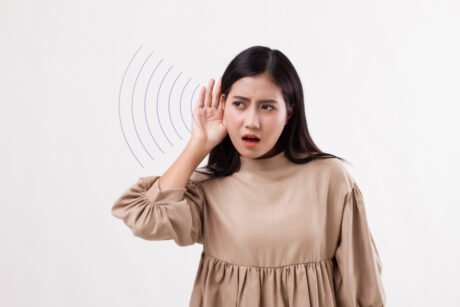Hearing loss can result from a lot of different reasons. Some people are born without the ability to use their hearing sense, while others develop it later on as they grow up. Understanding what causes deafness can help you appreciate the opportunity that is given to protect your hearing health. The same also helps us understand whether our hearing loss can be managed with hearing aids or with cochlear implants.
This guide is for everyone, whether you’re reading this for yourself or for your kids, as a reminder to give you and your hearing the extra protection it needs as early as now.
BASIC TYPES OF HEARING LOSS AND THE POSSIBLE CAUSES BEHIND IT
Conductive Hearing Loss
Congenital Conductive Hearing Loss
- Congenital stenosis: This is a condition that describes the narrowing of ear canals due to birth defect.
- Malformation of the middle ear structures
Acquired Conductive Hearing Loss
- Cerumen or earwax build up
- Infection: Otitis externa, inflammation on the outer ear and Otitis media, inflammation on the middle ear, may also hinder sounds from traveling to the inner ear because of swelling or fluid buildup.
- Perforated eardrums: A hole in the eardrum may result from infections or trauma. When this happens, the ability of the eardrums to catch sound vibrations deteriorates.
- Otosclerosis: Ossicles are small bones in the middle ear that functions as transmitters of sounds to cochlea. In the event that these tiny bones stiffens, it will fail to do its job well.
Sensorineural Hearing Loss
This type of hearing loss can also be either congenital or acquired. The following explains the 2 types of sensorineural hearing loss.
Congenital Sensorineural Hearing Loss
- Prematurity
- Gestational diabetes
- Low oxygen levels during childbirth
- Pregnancy infections such as rubella
- Genetics
Acquired Sensorineural Hearing Loss
- Aging
- Exposure to extremely loud noise
- Disease or infections that damage the inner ear
- Head injury
- Tumors that affect the auditory system
- Medications that are damaging to the hearing health
Mixed Hearing Loss
Mixed hearing loss occurs as a combination of conductive and sensorineural hearing loss. This means that this type happens when the ear is having a problem in both the outer/middle ear and inner hearing systems.
Some of these causes of hearing loss can either be treated by medication or surgery, or relieved with the use of a hearing aid. In order to know the ideal action for a specific hearing loss, it is best to consult a hearing care professional, like us here at The Listening Lab, so you can be diagnosed accurately and move forward with the appropriate treatment as soon as possible.
Now that you’ve understood better the causes behind different types of hearing loss, the next best thing to do is to find out ways that can help you prevent these from happening. We wrote a separate article for that. If you are interested on protecting your hearing health, head over to this article: 5 Simple Ways on How You Can Protect Your Hearing
The Listening Lab is your friendly hearing care center. If you have inquiries regarding your hearing health, we will gladly accommodate you. Head over to our branches today to claim your FREE hearing test!
About The Listening Lab
Listening Lab is a home-grown company whose mission is to help our clients restore their hearing to enjoy the life that they desire. Experiencing hearing loss can be detrimental to one’s quality of life. Hence we commit to providing high-quality hearing solutions.
Our hearing solutions include hearing tests and treatment and prescribing hearing aids. Clients may come to get their hearing checked, and we will assess whether hearing aids are required.
If hearing aids are required, clients can choose from a variety of the best hearing aid brands we provide. Each of the products offers unique features that complement daily use and perform well in helping our clients enjoy the life that they desire.










